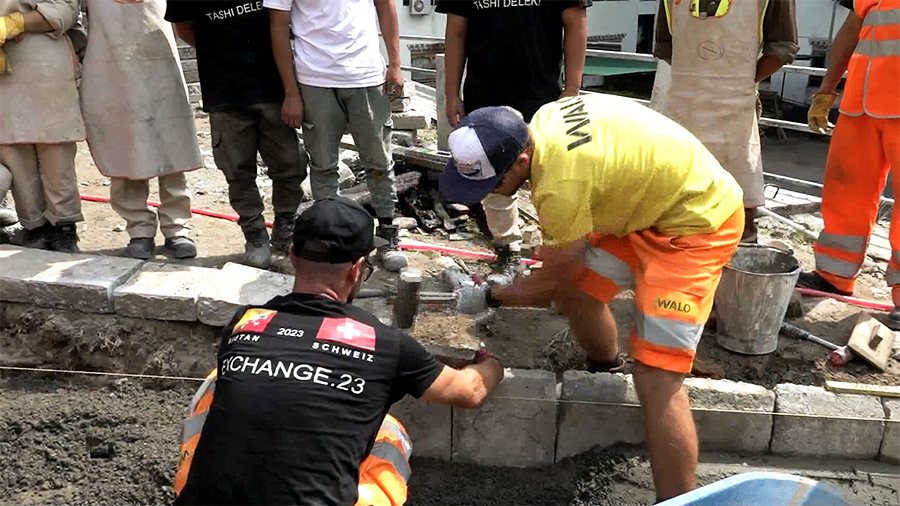
The issue of poor road conditions in the country has been a recurring topic for discussion. Sometimes it is the pothole-filled roads and on other occasions, it is the lack of proper drainage systems. To help address these issues, experts from Switzerland trained some 40 youths at the Jigme Wangchuck Power Training Institute in Sarpang. The training on road construction and blacktopping works ended on Monday.
 The experts from WALO, a Swiss company, trained the trainees from Jigme Wangchuck Power Training Institute and employees of private construction companies. They were taught how to build proper drainage systems and to create proper edges along the drains.
The experts from WALO, a Swiss company, trained the trainees from Jigme Wangchuck Power Training Institute and employees of private construction companies. They were taught how to build proper drainage systems and to create proper edges along the drains.
The drains with proper edges according to the WALO experts protect the blacktopping from getting damaged. Once both drain and edge are complete, only then is the road blacktopped.
The WALO experts say Bhutanese roads are often damaged by rainwater primarily due to the lack of a proper drainage system.
“Some of the roads are damaged by heavy rainfall. We discovered this in our previous projects. So, we decided to focus this time on road construction, especially on how to handle water on the road, how to build a drainage system, which should last even during heavy rainfall and monsoon,” said Manu, who is one of the trainers.
The participants were also introduced to road designing, material selection and testing, and blacktopping techniques.
They also learned about equipment operation, quality control and quality assurance.
“When we physically come here and carry out practical work, we learn about a variety of items, including equipment. I did not have the opportunity to carry out blacktopping works before. But here, I experience it first-hand. When it comes to practical work, there is a step-by-step process,” said Passang Dem.
The programme was initiated with funding from the Skill Development Programme under the Ministry of Education and Skills Development.
It is a part of the Bhutan-Swiss Vocational-Technical Education Exchange programme.
Karma Wangdi, Sarpang
Edited by Sangay Chezom










